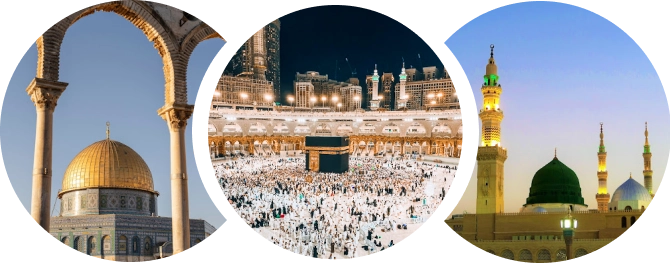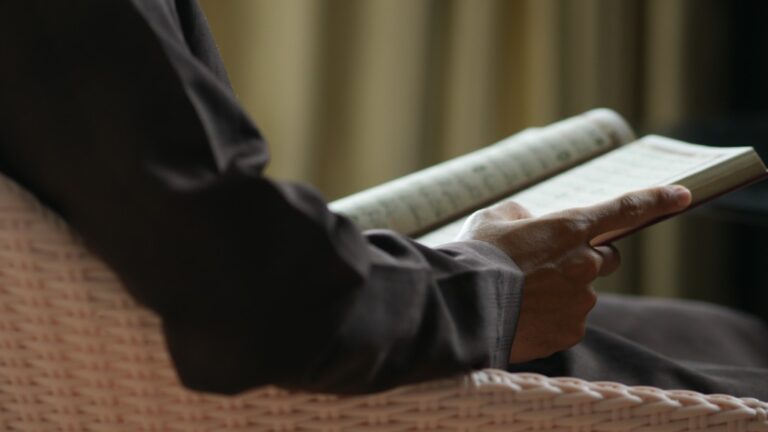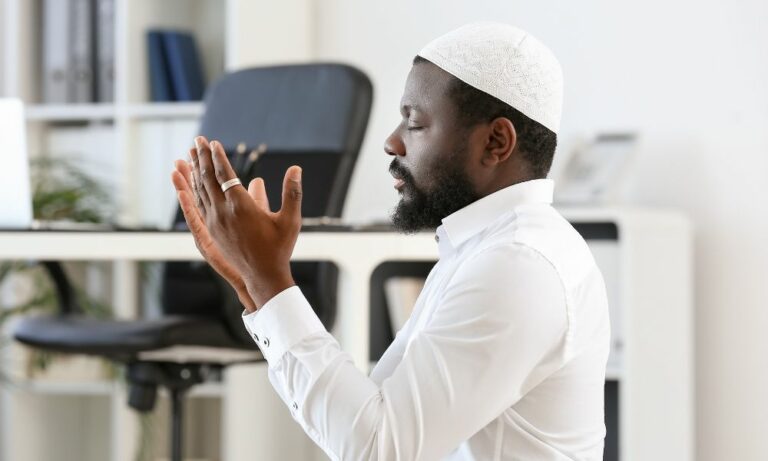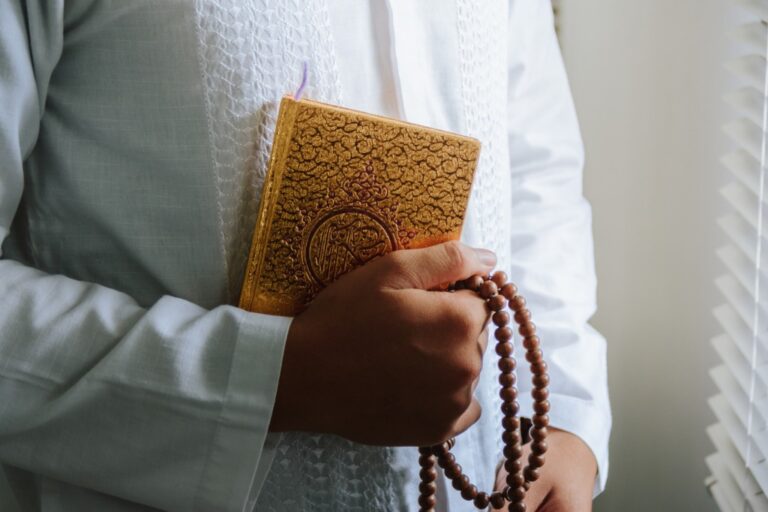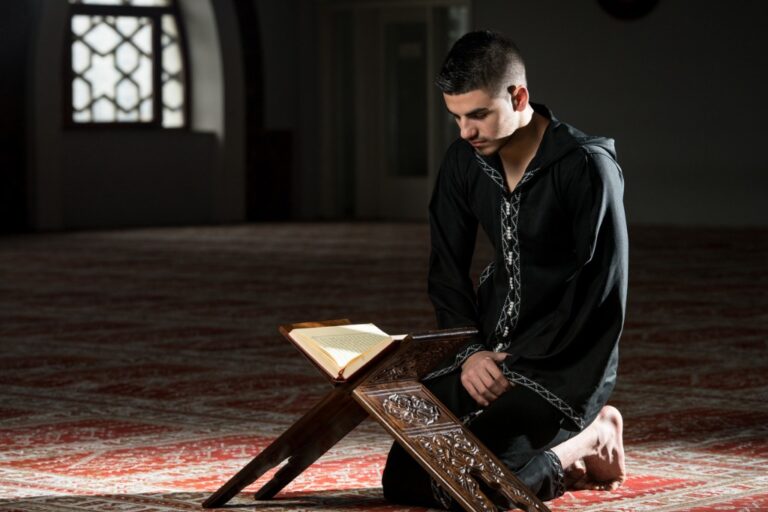What Does Salah Mean? Meaning, Purpose, Significance
You might have heard the term “Salah” used by Muslims, but do you know what it really means? Salah, in Arabic, denotes a divine connection or communication with Allah SWT through ritual Prayer.
In this detailed guide, we will tell you about what Salah means and its importance in Islam. We also talk about the different types of prayers, their times, and the steps you need to take to do them well.
So stick around to learn more about what makes Salah a spiritually significant practice for Muslims worldwide.
Understanding Salah: Definition and Purpose
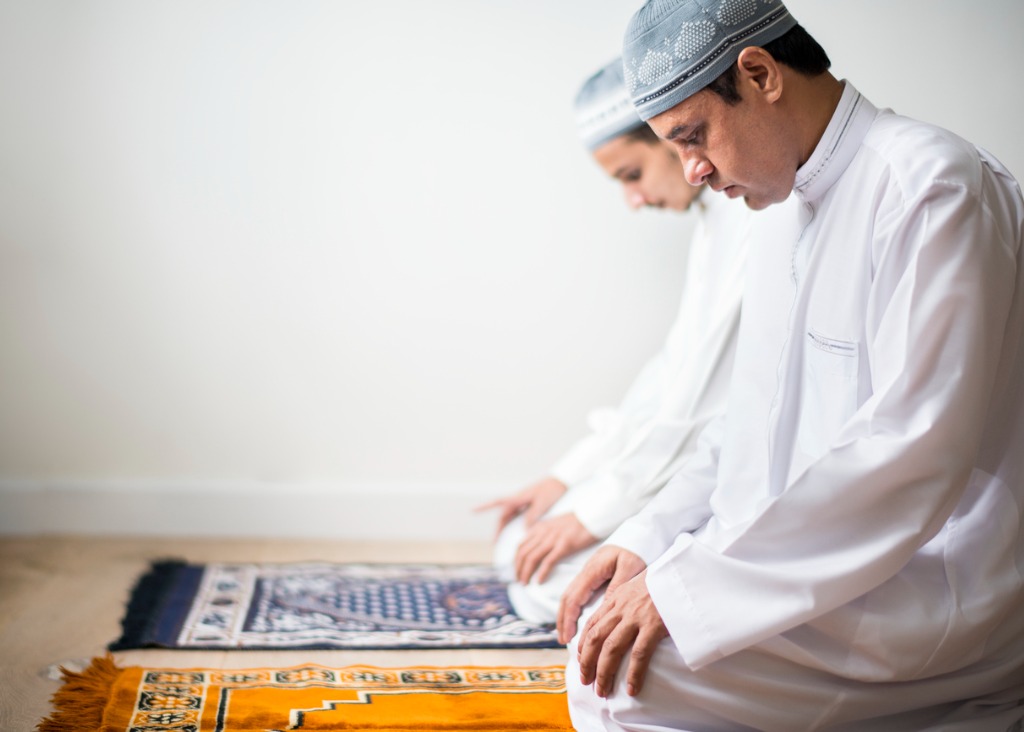

Salah, which translates to Islamic prayer, creates a direct and intimate connection between you and Allah SWT.
Through this revered practice, you engage in specific physical movements and recitations of Quranic verses that foster a sense of humility and complete surrender to the Divine will.
As you perform Salah while facing the Kaaba (located in Mecca), this act becomes a unifying force that binds Muslims worldwide.
Upon closer examination, you’ll find that Salah serves multiple essential roles in your life. Embedded as one of Islam’s Five Pillars, it is the cornerstone of your spiritual journey.
Beyond its obligation for adult Muslims, Salah cultivates discipline and mindfulness, virtues that profoundly impact your daily life.
It’s a means to strengthen your bond with Allah SWT, whether you’re celebrating moments of happiness or navigating challenges by seeking His guidance, invoking His mercy, or expressing heartfelt gratitude for His countless blessings.
The Significance of Salah in Islam
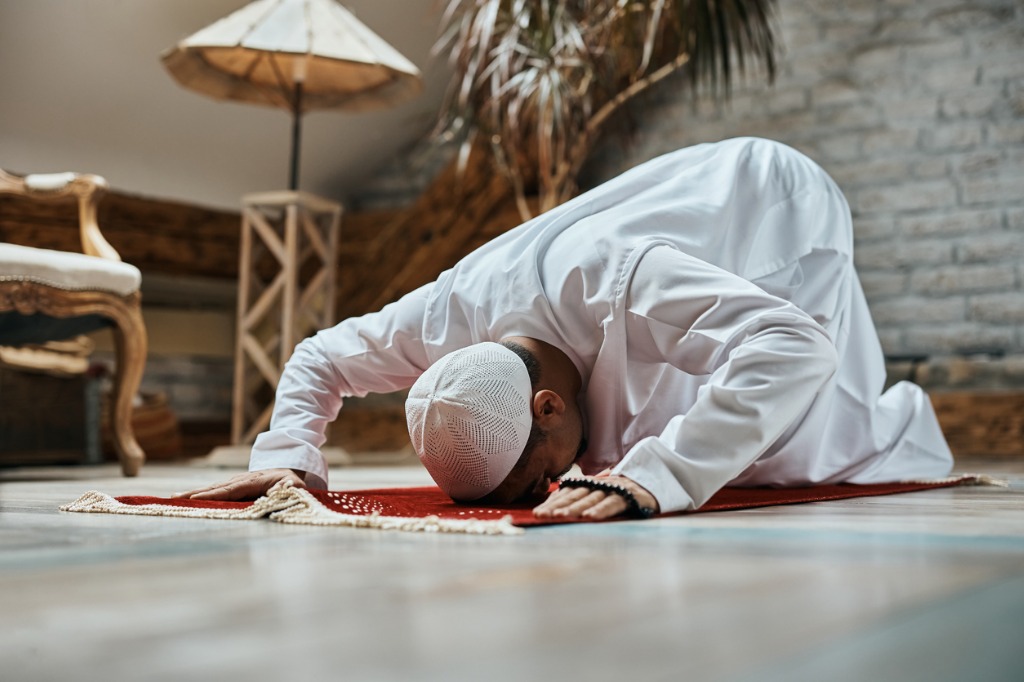

Salah holds immense significance in Islam, playing a role beyond mere worship. As one of the Five Pillars of Islam, it forms the bedrock of your spiritual journey.
When you engage in Salah five times daily, you open regular direct communication channels with Allah SWT. Amid the daily rush, these moments of prayer offer you a chance to reflect quietly and submit yourself, nurturing mindfulness and spiritual self-control.
In a broader context, this ritual prayer doesn’t just affect you; it also has a big impact on the whole community.
Also, Salah is a physical way to show that Islamic principles should be part of your life. During Salah, people make precise movements and read from the Quran. This shows how Islamic teachings combine theory and practice.
It’s worth noting that Salah won’t only contribute to your personal growth and community solidarity, but it also holds a significant place in the hereafter.
On the Day of Judgment, Allah SWT will ask you about your participation in Salah, emphasizing how important it is to both your life on earth and your eternal life after death.
The Names Of Five Prayers:
Muslims perform Salah facing the Kaaba, which holds great significance in Islam. This ritual prayer is performed at specific times throughout the day, including
- Fajr (dawn)
- Dhuhr (midday)
- Asr (afternoon)
- Maghrib (sunset)
- Isha (night)
Fard (obligatory prayers), Sunnah (recommended prayers based on Prophet Muhammad’s practices), and Nafl (optional prayers) are the three main types of prayers in Islam. Muslims directly connect with Allah SWT through Salah, seeking His guidance and expressing devotion to Him.
Salah as Mentioned in the Quran
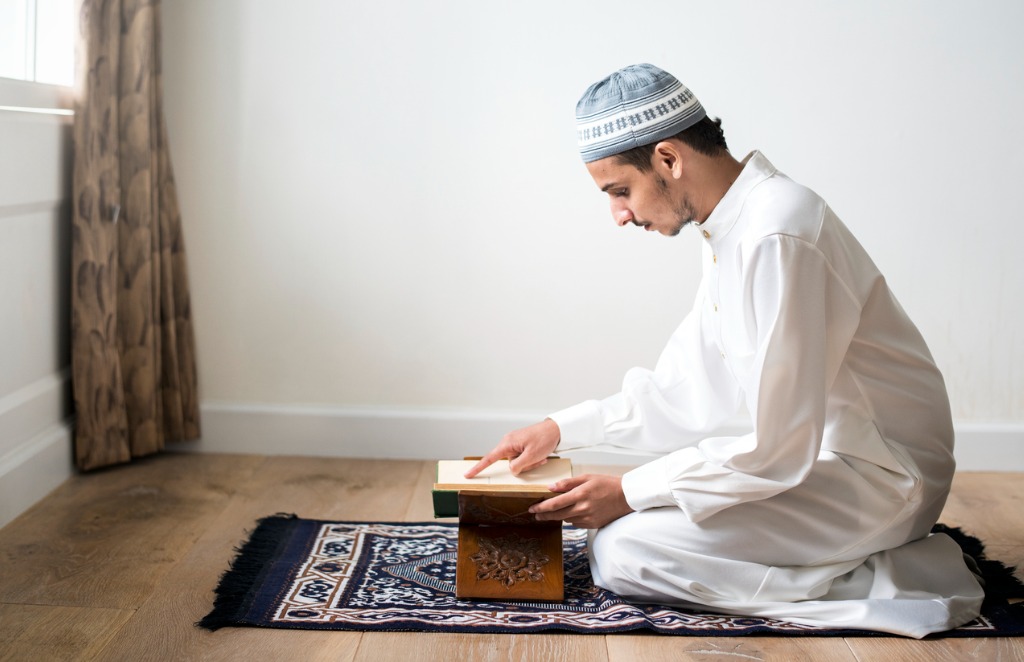

Salah is mentioned in detail in the Quran, demonstrating its significance. Various Surahs contain direct divine commands from Allah SWT regarding the performance of this ritual prayer.
Surah Al-Baqarah, the second chapter, contains several verses emphasizing how the act of Salah maintains a Muslim’s connection with Allah SWT and affirms their faith.
There are several references to prayer in the Quran; it is frequently emphasized alongside the concept of Zakah as an essential requirement for believers. For instance, in Surah Ibrahim (14:31), Allah SWT instructs followers to “Establish regular Prayer and give regular Charity.”
قُل لِّعِبَادِىَ ٱلَّذِينَ ءَامَنُوا۟ يُقِيمُوا۟ ٱلصَّلَوٰةَ وَيُنفِقُوا۟ مِمَّا رَزَقْنَـٰهُمْ سِرًّۭا وَعَلَانِيَةًۭ مِّن قَبْلِ أَن يَأْتِىَ يَوْمٌۭ لَّا بَيْعٌۭ فِيهِ وَلَا خِلَـٰلٌ
Tell My believing servants to establish prayer and donate from what We have provided for them—openly and secretly—before the arrival of a Day in which there will be no ransom or friendly connections.
Allah SWT has also mentioned the different timings of Salah in the Quran.
أَقِمِ ٱلصَّلَوٰةَ لِدُلُوكِ ٱلشَّمْسِ إِلَىٰ غَسَقِ ٱلَّيْلِ وَقُرْءَانَ ٱلْفَجْرِ ۖ إِنَّ قُرْءَانَ ٱلْفَجْرِ كَانَ مَشْهُودًۭا
Observe the prayer from the decline of the sun until the darkness of the night and the dawn prayer, for indeed, the dawn prayer is witnessed ˹by angels˺ 17:78
The setting sun signifies Duhr and Asr prayer, the darkness of the night represents Maghrib and Isha, and the dawn prayer points to Fajr.
What Is The Purpose Of Salah?
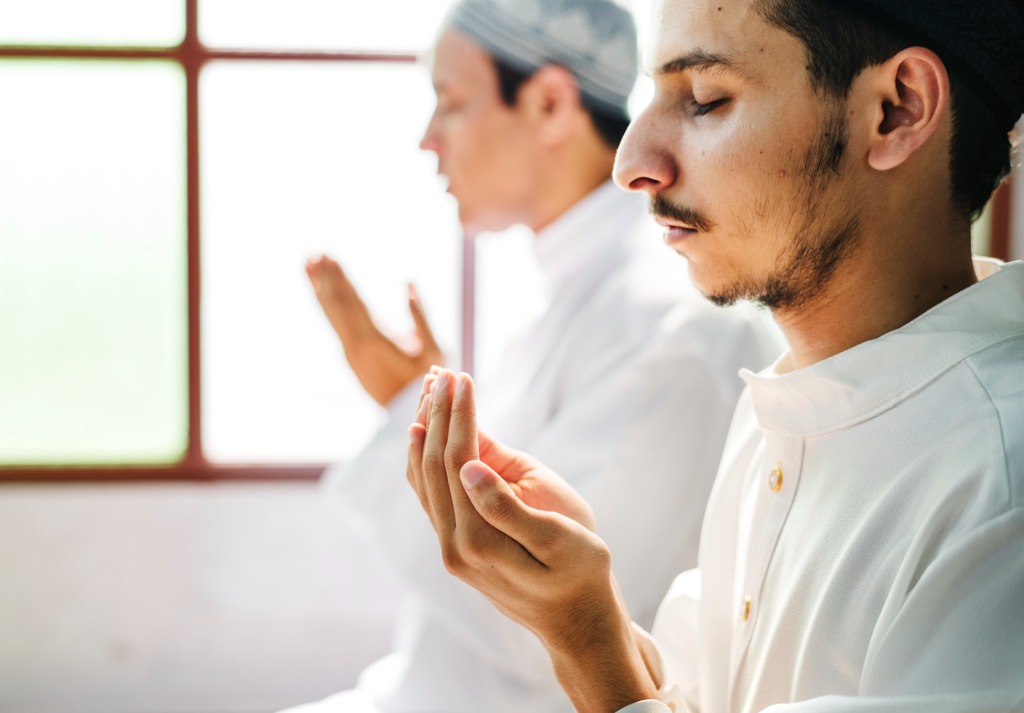

Salah is not just an act of worship; it’s more than that since it offers multiple benefits. That’s why it’s important to discuss its purpose so that you can understand how it strengthens your faith and helps you thrive in the world.
Strengthening The Bond With Allah SWT
Salah allows you to establish a direct and intimate connection with Allah SWT. You express your submission, gratitude, and love for the Divine through prostration. It becomes a means to seek Allah SWT’s forgiveness, guidance, and blessings.
Spiritual Purification
Incorporating Salah into your life purifies your soul and cleanses your intentions. During these moments of prostration, you find time for self-reflection, repentance, and seeking forgiveness for any shortcomings.
This regular practice aids in detaching from the world’s distractions and focuses your attention on remembering Allah SWT.
Self-Discipline And Time Management
Following specific timings and adhering to a structured routine for Salah fosters discipline within you. This disciplined practice helps you effectively manage your time, reminding you of the importance of balancing your spiritual and worldly commitments.
Establishing A Connection With The Community
Remember that Salah is more than an individual act; it’s a communal worship practice. When you engage in congregational prayer, you reinforce your shared beliefs and values with fellow Muslims.
This sense of unity and togetherness in worship also provides valuable spiritual support, strengthening the bond among believers in the community.
Developing Gratitude And Contentment
Salah helps to cultivate an attitude of gratitude and contentment, as Muslims are reminded of the blessings bestowed upon them by Allah SWT. It is a way for believers to thank Allah SWT for His countless favors and serves as a reminder of our dependence on Him to live meaningfully.
These examples demonstrate that Salah is more than just a physical act; it is characterized by spiritual depth and purpose to elevate practitioners’ Taqwa or righteousness.
The Ritual of Salah: A Step-by-Step Guide


Performing Salah involves several steps, including ablution for purification (Wudu), making the intention (Niyyah), and engaging in the formal prayer itself.
Ablution: Purification and Preparation
Ablution, or Wudu, is significant in Islam as it readies you for Salah (prayer). This ritual involves cleansing body parts – hands, mouth, nose, face, arms, head, ears, and feet.
Through this act of ablution, you signify physical and spiritual purification, a necessary step before you stand before Allah SWT. This practice underscores the commitment to achieve purity, both externally and internally.
As you perform Wudu before prayer, you get ready to pray with a renewed sense of devotion and a stronger ability to focus on making a deep connection with Allah SWT.
It is the most crucial part of Salah since without it, the Salah will be marked as invalid.
مِفْتَاحُ الْجَنَّةِ الصَّلاَةُ وَمِفْتَاحُ الصَّلاَةِ الْوُضُوءُ
“The key to Paradise is Salat and the key to Salat is Wudu.” Jami` at-Tirmidhi 4
Niyyah: The Intention
Salah is incomplete without the intention or niyyah. It refers to our prayer’s sincere and transparent purpose. When we make a Salah intention, it should be solely for Allah SWT’s pleasure and not worldly gain.
Before we begin the physical movements of Salah, we make the niyyah in our hearts. It serves as the starting point for our prayer and is critical to its validity.
We consciously dedicate our prayers to Allah SWT alone by having a proper and sincere intention, deepening our connection with Him during this spiritual act of worship.
Performing the Prayer:
When you perform Four units (rakah) as an example, begin with the intention (niyyah). Then perform the following steps:
- Stand facing the direction of the Kaaba (Qiblah).
- Raise your hands till your ears and say “Allahu Akbar” to start the prayer. Book 2, Hadith 155
- Place your right hand over your left hand on your chest, just below your navel. Sunan Abi Dawud 759
- Start with Dua of Istiftah .سُبْحَانَكَ اللّٰهُمَّ وَبِحَمْدِكَ ، وَتَبَارَكَ اسْمُكَ ، وَتَعَالَىٰ جَدُّكَ ، وَلَا إِلٰهَ غَيْرُكَ (it is only recited in the first Rakah) Sunan an-Nasa’i 900
- Seek Refuge of Allah from Satan, and begin in Allah’s name, then Recite Surah Al-Fatiha, the first chapter of the Quran, quietly or silently. Book 2, Hadith 172
- Follow it with a short passage or verse from any other chapter (Surah) of the Quran, known as a surah or verse recitation. Sahih Muslim 396c
- Perform a bowing position (ruku) by bending from your waist while keeping your back straight and hands resting on your knees. Say “Subhana Rabbi Yal Adheem” and say it at least three times. Riyad as-Salihin 1175
- Rise from the bowing position and stand upright while saying “Sami Allaahu Liman” Hamidah” in an audible voice, which means “Allah hears those who praise Him.” Sunan an-Nasa’i 1072
- Continue by saying “Rabbanaa wa laka l-hamd” silently, meaning “Our Lord, all praise is due to You.” Sunan Ibn Majah 877
- Prostrate (sajdah) by placing your forehead, nose, palms, knees, and toes on the ground while saying “Subhaana Rabb-Bi Yal Aa’la,” which means “Glory be to my Lord Almighty.” Sunan an-Nasa’i 1046
- Sit up briefly in a sitting position called jalsa and recite “Rabbighfirli” (Oh Lord, forgive me) before returning to prostration for a second time. Sunan Ibn Majah 897
- After the second prostration, stand up and follow the same steps from 5-11 for the second Rakah.
- After completing the second Sajdah in the second Rakat, sit up straight for Tashahud. And keep both your hands on your thighs, then Recite “At-tahiyyatu lillahi was-salawatu wat-tayyibat. As-salamu ‘alaika ayyuhan-nabiyyu wa rahmatullahi wa barakatuh. Assalamu `alaina wa `ala `ibadi l-lahi s-salihin Ash-hadu al-la ilaha illa l-lah, wa ash-hadu anna Muhammadan `Abduhu wa Rasuluh. ” (All the compliments, prayers and good things are due to Allah; peace be on you, O Prophet, and Allah’s mercy and blessings [be on you]. Peace be on us an on the pious subjects of Allah I testify that there is no Deity [worthy of worship] but Allah, and I testify that Muhammad is His slave and His Apostle).(Source: Sahih al-Bukhari 831)
- During Tashahud, when you say “ Ash-hadu al-la ilaha illa l-lah” then you have to raise your right index finger for a little while. After Tashahud stand up for the third Rakah.
- Repeat the steps mentioned above to complete the third and fourth Rakah. Third rakah is same as the first rakah, except that you don’t have to pray “Dua of Istiftah.”
- After completing the two prostration in 4th Rakat, remain seated in a sitting position and recite the Tashahud. Then recite Durood-e-Ibrahimi, and after that, recite the dua “Allahumma Rabbana atina fid dunya hasanah wa fil akhirati hasanah wa qina ‘adhaban nar” Sahih al-Bukhari 3370, Sahih al-Bukhari 4522
- Finish the prayer by turning your face to the right and saying “Assalamu Alaikum wa Rahmatullah,” meaning “Peace be upon you and the mercy of Allah .” Then, turn your face to the left and do the same. Jami` at-Tirmidhi 295
Types of Salah Prayers
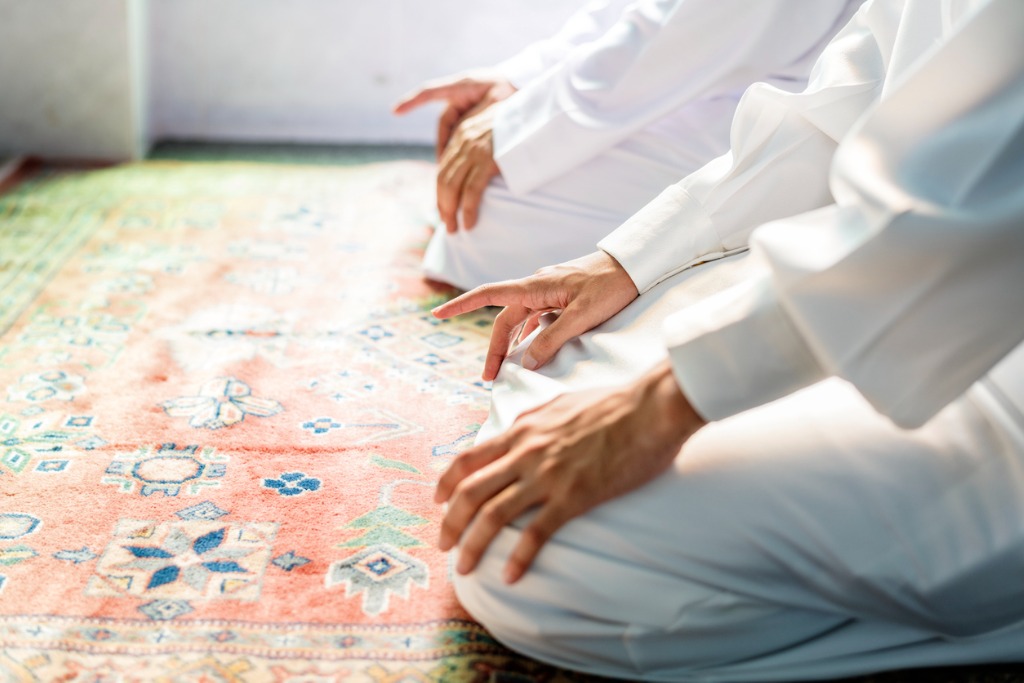

There are two main Salah prayers in Islam: obligatory and voluntary (additional spiritually beneficial prayers).
Obligatory Prayers
Fard prayers are essential to the Islamic faith and are required of all adult Muslims. You must offer these prayers at specific times.
If you miss them by mistake, you must make it up as soon as you realize it.
It is important to note that you should always perform obligatory prayers by facing the Kaaba, which is regarded as Islam’s holiest site. Muslims maintain a strong connection with Allah SWT and foster a sense of unity among believers by performing these obligatory prayers.
Additional Spiritually Beneficial Prayers (Voluntary)
You may also perform spiritually beneficial prayers such as Tahajjud, Witr, Tarawih, Tawbah, Qiyam al-Layl, and Salat al-Istikhara in addition to the obligatory Salah. These prayers assist you in maintaining a strong connection with Allah SWT and enriching your spiritual journey.
Muslims can experience greater unity among believers and deepen their devotion to Allah SWT’s worship by participating in these additional prayers.
Muslims are encouraged to perform all prayers with focus and excellence, striving to worship Allah SWT as if seeing Him.
The Importance of Praying Five Times a Day
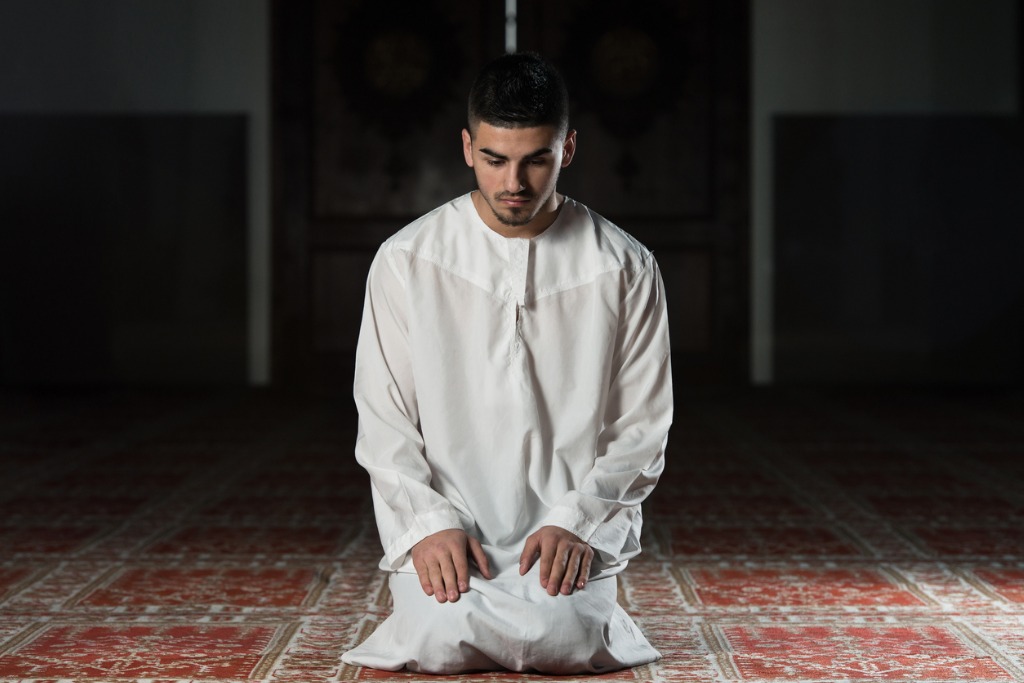

In Islam, you’ll discover the significance of offering prayers five times daily. These acts are a direct channel to stay connected with Allah SWT and seek His guidance throughout your day.
Your commitment and devotion to your faith shine through as you perform these prayers.
Moreover, these prayers unite believers at specific times to worship collectively. Praying five times daily reminds you of your duties and responsibilities to Allah SWT and your fellow humans.
Engaging in this consistent act of worship holds the power to cleanse your heart, seek forgiveness for your transgressions, and find solace amid life’s challenges and worries.
The Method of Salah: How Do We Know How to Pray?
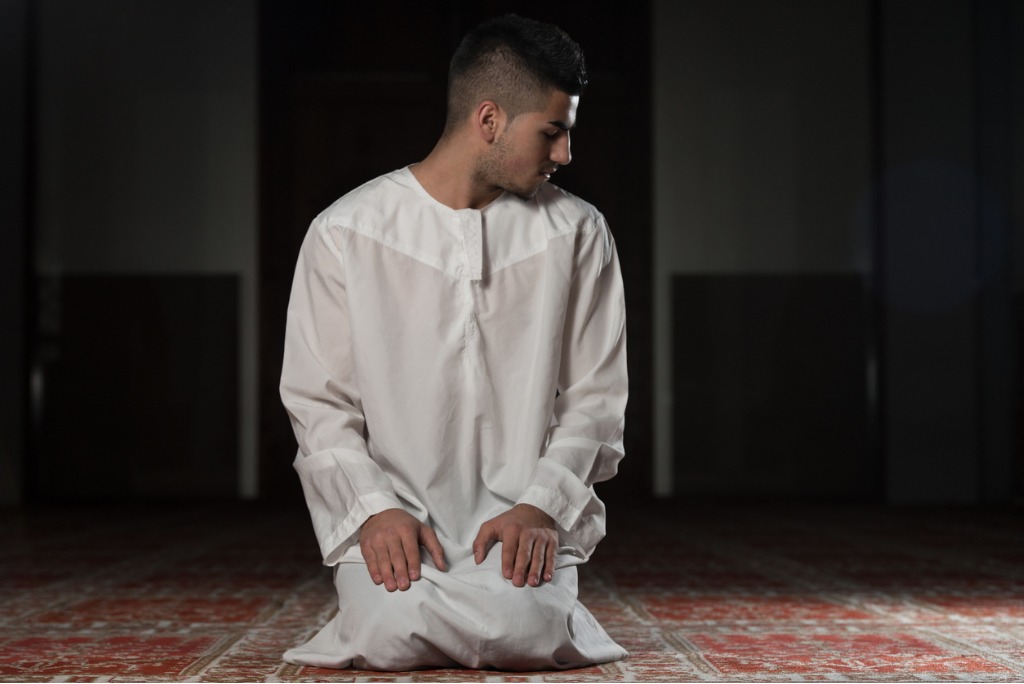

Muslims know how to pray using the Salah method, passed down from generation to generation. The steps of praying Salah is based on our Holy Book Quran, and the teachings of the Prophet Muhammad PBUH.
The basic command of prayer is obligatory on us in the Quran, but the steps of performing it are not mentioned in the Quran. Instead, the step-by-step method is mentioned in the book of hadiths, in which companions of the Prophet narrated the steps of performing Salah.
But we don’t have to search for those ahadith because we learn to pray by observing and imitating others, particularly our parents. We also seek Salah knowledge from Islamic scholars, who guide us in performing each prayer step correctly.
The Call to Prayer: Understanding the Adhan
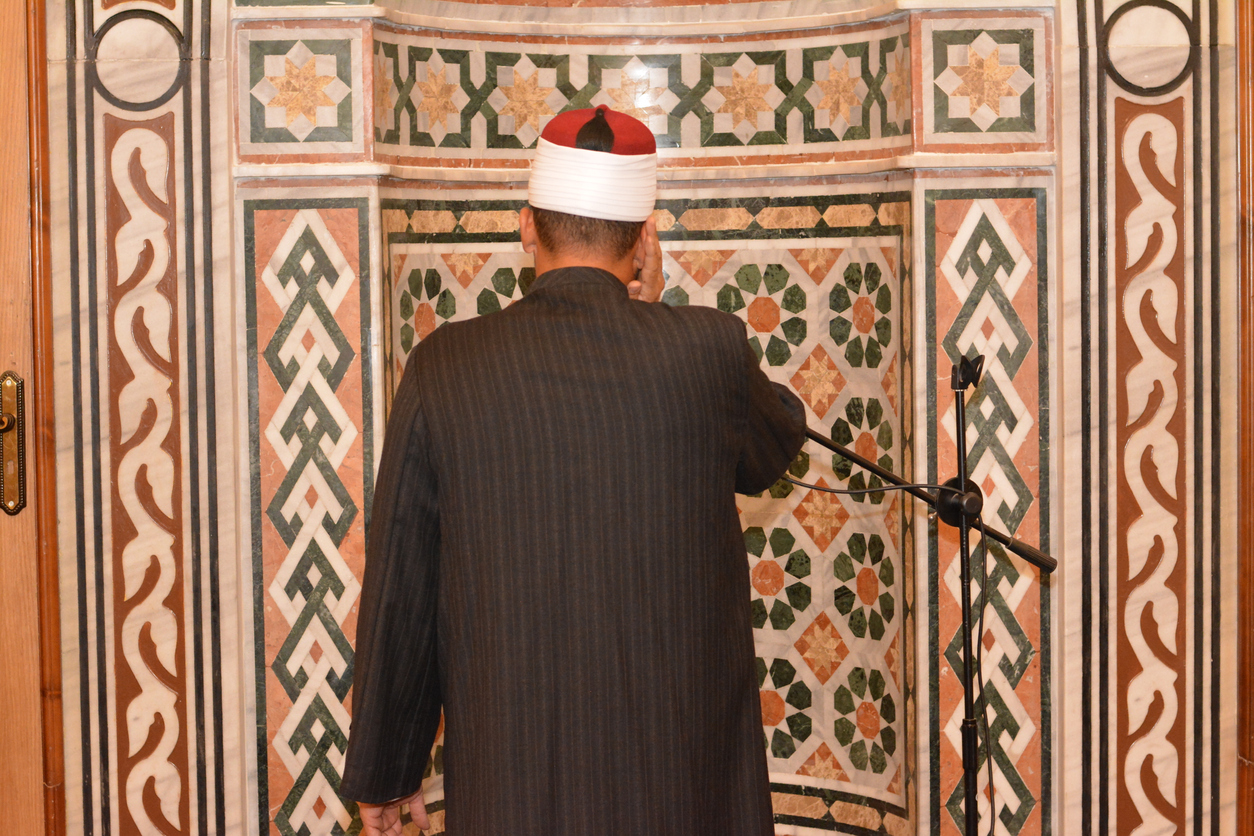

The Adhan is the call for Islamic prayer and is recited in Arabic. It serves as a reminder for Muslims to stop what they are doing and dedicate time to pray.
It is traditionally recited from the minaret of a mosque by a muezzin. The Adhan serves to alert Muslims to the start of each prayer time.
Congregational Prayers: The Importance of Community in Salah


In your journey within Islam, you’ll find that congregational prayers hold immense importance. They underscore the significance of community and unity among believers.
When you can, it’s encouraged for Muslim men to join in prayers at the mosque as a congregation. Prophet Muhammad PBUH said that praying in congregation is 15 times better than praying alone.
By engaging in this practice, you forge stronger bonds with others and contribute to social integration and compassion within the community.
Congregational prayers provide a platform for Muslims to gather as a united group, nurturing a sense of belonging and collective devotion to Allah SWT.
Moreover, praying alongside fellow believers establishes an environment of spiritual support and motivation.
This collective act elevates your faith and deepens your connection with Allah SWT. You can connect with like-minded individuals through congregational prayers, paving the way for friendships and building a robust support network within the Ummah (Muslim community).
Health Benefits of Salah
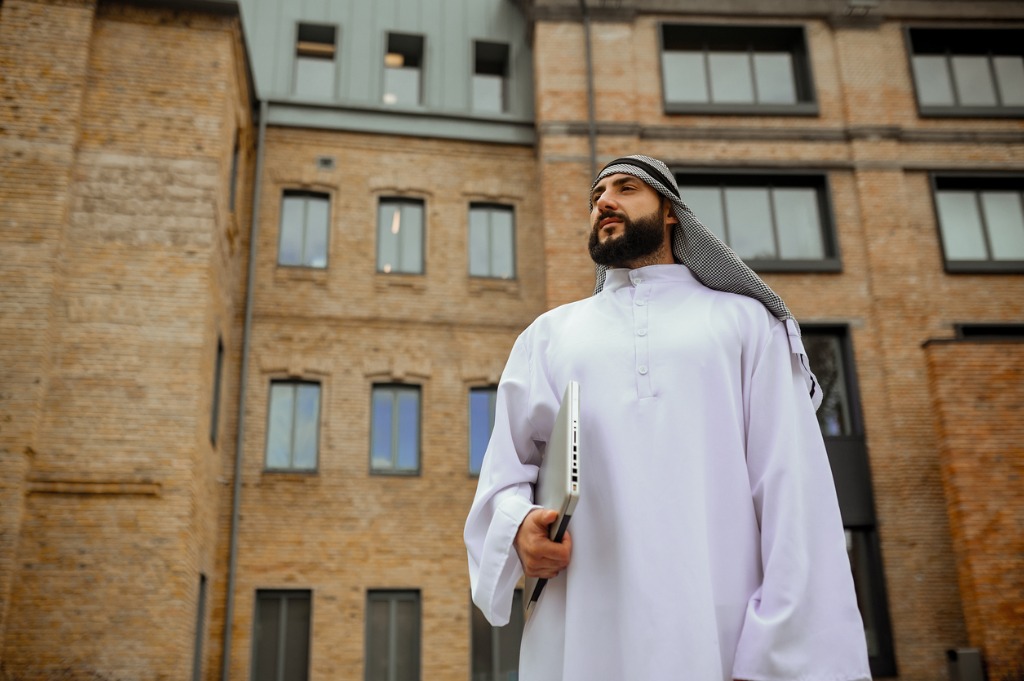

Salah offers numerous health benefits, including physical fitness and mental well-being. It is time to discover how this ritual prayer can improve your overall health and wellness. Read more to learn about the fantastic benefits of Salah in your life.
Physical, Mental and Emotional Benefits
Salah is not only spiritually significant, but it also has several physical benefits. According to one study, Salah’s specific movements and positions help exercise various muscles and joints, thereby preventing physical ailments.
Prostration during Salah, known as Sajdah, has physiological and psychological benefits such as stress relief and promoting humility and submission. Furthermore, increased blood flow to the brain during prostration improves memory, concentration, and cognitive abilities.
Salah assists individuals in achieving khushu – a focused and immersed state of mind that improves performance and well-being.
Salah, or Islamic ritual prayer, has several mental and emotional benefits. Because it is similar to the child pose in Yoga, which has been shown to relieve stress, the act of prostration during Salah, known as Sajdah, can help alleviate stress.
In some communities, Muslims rely on spiritual practices like Salah for mental health before seeking medical assistance.
Salah and Yoga: A Comparison
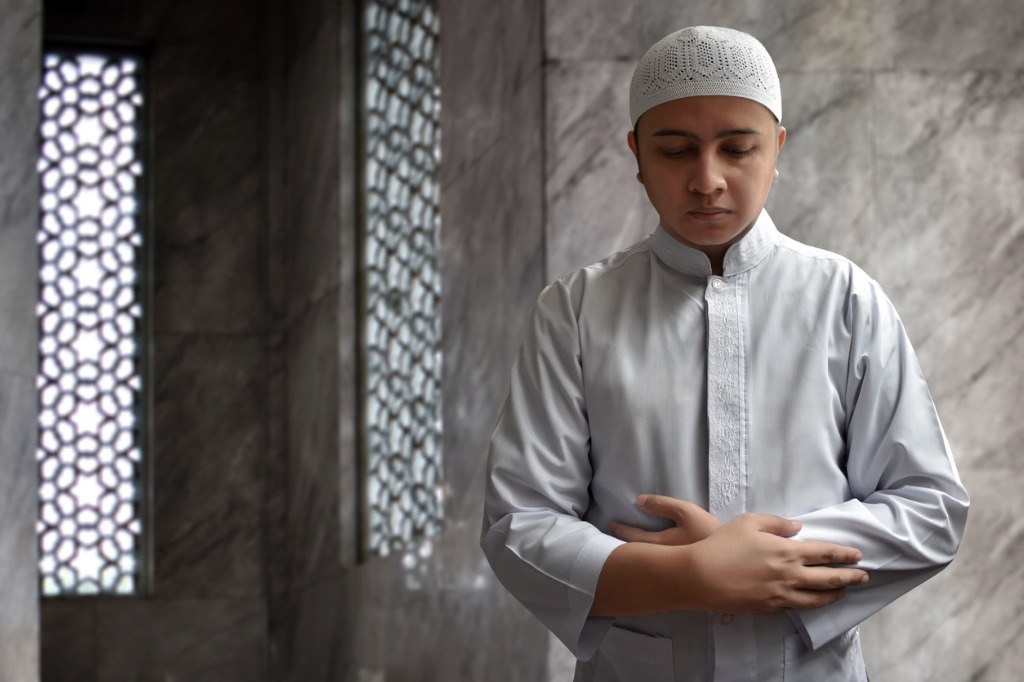

Salah and Yoga have mental health benefits but differ in their practices. However, some of the postures of Salah and Yoga resemble a lot.
Similarities in Postures:
Salah and Yoga have a few postures in common, such as standing in qayyam. In both Ruku and Ardha Uttansana, you must perform a bowing position. During Salah, you must prostrate, similar to the Yoga pose Balasana. Muslims don’t need to dedicate a separate time for Yoga; they already do it five times daily!
Similarities in Mental Health Benefits
In terms of mental health benefits, Salah and Yoga are similar. Both practices emphasize discipline and mindfulness, assisting people in developing a sense of focus, clarity, and calm in their daily lives.
They have improved stress management, emotional regulation, concentration, and overall mental well-being. Prostration in Salah and specific yoga poses also have mental health benefits, such as stress relief and promoting humility and submission.
Differences in Practices
Salah and Yoga have mental health benefits, but their practices differ vastly. While Salah entails specific movements and Quranic verse recitation, Yoga focuses on postures, breathing exercises, and meditation.
Salah is performed at specific times of the day facing the Kaaba, whereas Yoga can be practiced anywhere and at any time. Furthermore, Salah is considered a religious duty for all adult Muslims, whereas Yoga is a personal choice unrelated to any religious belief.
While both practices promote well-being, their methods and goals are distinct.
The Pillars of Islam: The Role of Salah
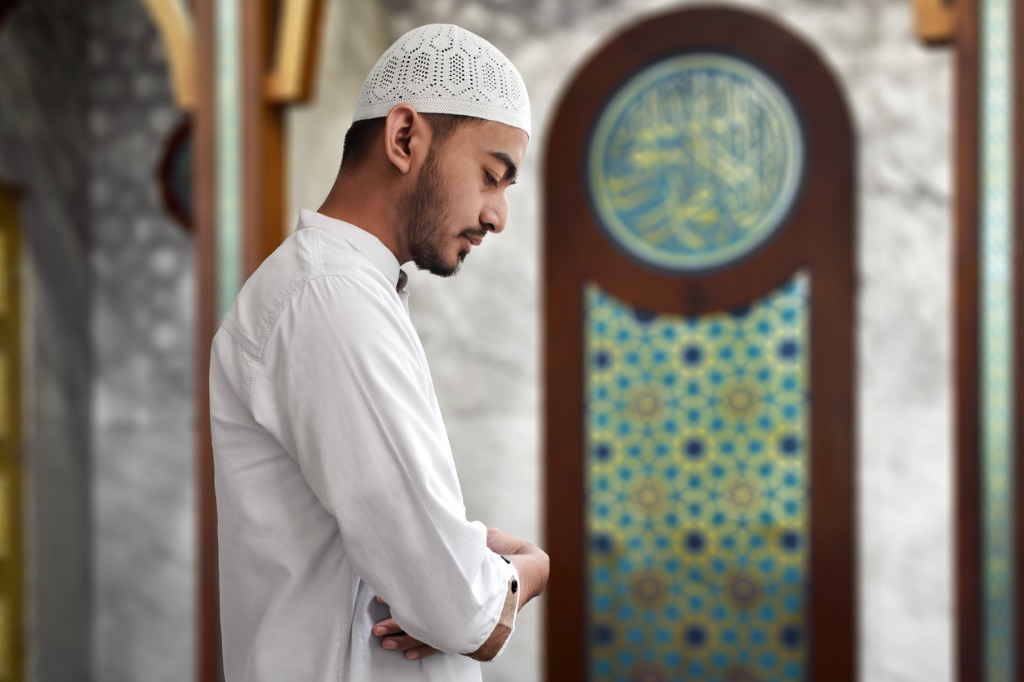

“ بُنِيَ الإِسْلاَمُ عَلَى خَمْسٍ شَهَادَةِ أَنْ لاَ إِلَهَ إِلاَّ اللَّهُ وَأَنَّ مُحَمَّدًا عَبْدُهُ وَرَسُولُهُ وَإِقَامِ الصَّلاَةِ وَإِيتَاءِ الزَّكَاةِ وَحَجِّ الْبَيْتِ وَصَوْمِ رَمَضَانَ ”
(The superstructure of) al-Islam is raised on five (pillars), testifying (the fact) that there is no god but Allah SWT, that Muhammad is His bondsman and messenger, and the establishment of prayer (Salah), payment of Zakat, Pilgrimage to the House (Ka’ba) and the fast of Ramadan. Sahih Muslim 16c
In your journey as a Muslim, you’ll discover that Salah holds immense significance. It is more than just a religious duty – it’s a way to establish a profound bond with Allah SWT and foster unity among fellow Muslims.
The practice of Salah cultivates discipline, mindfulness, and gratitude in your everyday life. Even during the tough times of life, you stay connected to your faith.
By upholding this fundamental pillar of Islam, you’re striving for Ihsan – the pursuit of excellence in worship. It’s a way to prepare for your earthly life and the afterlife, all while keeping Allah SWT’s mercy and guidance at the forefront of your journey.
Amazing Facts About Salah
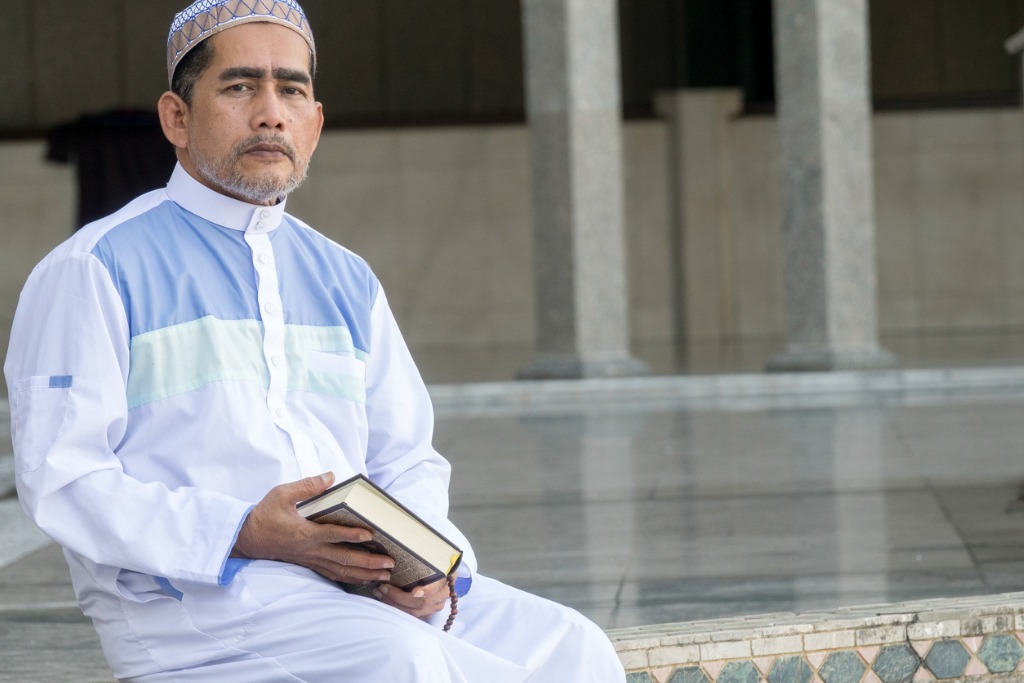

Muslims have historically practiced Salah for over 1,400 years, which is a vital part of their daily lives. It is a ritual prayer and an opportunity for believers to connect with Allah SWT and seek His guidance and blessings.
Historical Facts
Salah has a long history dating back to the Prophet Muhammad PBUH. Allah SWT commanded Muslims to establish five daily prayers during the Isra and Mi’raj, the Night Journey, and Ascension.
In a lengthy hadith, Prophet Muhammad PBUH describes the Isra Mi’raj journey, saying, “… Allah SWT enjoined fifty prayers on my followers…”
However, on his way back from the seventh heaven to the earth, Prophet Moses advised him to reduce the prayer because the Muslims would be unable to perform it. As a result, the number of prayers was reduced from fifty to five.
But do you know what Allah SWT said about these five prayers? He said: “These are five prayers, and they are all (equal to) fifty (in reward) for My Word does not change” Sahih al-Bukhari 349
Furthermore, The ritual movements in prayer were taught directly by Angel Gabriel to the Prophet PBUH. (Reference)
Interesting Practices
Salah is filled with exciting practices that add depth to this spiritual act. As we discussed in the previous section that many practices of Salah relate to the practices of yoga
These practices not only make us physically fit but also bring us closer to Allah SWT. Another fascinating practice is reciting specific verses from the Quran during Salah.
These verses serve as a means of communication with Allah SWT and provide guidance and inspiration for Muslims. If you are familiar with Arabic, then reciting the verses of the Quran during Salah takes you to another level of spirituality.
But sadly, most Muslims consider prayer a mere obligation and not a way to get closer to Allah SWT, and that’s why they struggle to find peace and fulfillment in life.
May Allah guide all of us, especially those who are struggling to find the correct path!
Conclusion
Salah carries immense meaning, purpose, and significance. It becomes your way of communicating directly with Allah SWT, seeking His blessings and guidance. Through ritual prayer, you forge a profound spiritual connection, reaping mental and emotional benefits, nurturing discipline, and fulfilling your Islamic obligations.
Salah’s role is to continuously remind you of the paramount importance of worship and fortify the Muslim community’s bonds.
FAQs
What does the term “Salah” mean?
Salah is an Arabic word that means the Islamic prayer ritual, which includes specific physical movements and recitations.
What is the purpose of Salah in Islam?
In Islam, the purpose of Salah is to create a spiritual connection with Allah SWT (God) through worship, reflection, and submission. It is used for communication and seeking forgiveness from Allah SWT.
Why is Salah significant in the Islamic faith?
Salah is an essential part of the Islamic faith as it is one of the Five Pillars of Islam, which are necessary acts of worship for Muslims. It demonstrates submission to Allah SWT’s commands and strengthens devotion to Him.
How often should Muslims perform Salah?
Muslims are required to perform Salah five times a day: Fajr (before sunrise), Dhuhr (midday), Asr (afternoon), Maghrib (after sunset), and Isha (nighttime). These consistent prayers aid in maintaining a constant connection with Allah SWT throughout the day.
ماذا يعني صلاح؟ المعنى والغرض والأهمية
ربما سمعت مصطلح "صلاح" الذي يستخدمه المسلمون، لكن هل تعرف ما يعنيه حقًا؟ تشير الصلاة باللغة العربية إلى الاتصال الإلهي أو التواصل مع الله سبحانه وتعالى من خلال طقوس الصلاة.
في هذا الدليل التفصيلي سنخبرك عن معنى الصلاة وأهميتها في الإسلام. نتحدث أيضًا عن أنواع الصلوات المختلفة وأوقاتها والخطوات التي يجب عليك اتباعها لأداء هذه الصلوات بشكل جيد.
لذا تابع لمعرفة المزيد حول ما يجعل الصلاة ممارسة ذات أهمية روحية للمسلمين في جميع أنحاء العالم.
فهم صلاح: التعريف والغرض


الصلاة، التي تترجم إلى الصلاة الإسلامية، تخلق اتصالاً مباشرًا وحميميًا بينك وبين الله سبحانه وتعالى.
من خلال هذه الممارسة الموقرة، فإنك تشارك في أمور محددة حركات جسدية وتلاوة آيات قرآنية تعزز الشعور بالتواضع والاستسلام التام للإرادة الإلهية.
عندما تؤدي الصلاة في مواجهة الكعبة (الموجودة في مكة)، يصبح هذا العمل قوة موحدة تربط المسلمين في جميع أنحاء العالم.
عند الفحص الدقيق، ستجد أن صلاح يؤدي أدوارًا أساسية متعددة في حياتك. باعتباره أحد أركان الإسلام الخمسة، فهو حجر الزاوية في رحلتك الروحية.
إلى جانب التزامها بالمسلمين البالغين، تعمل الصلاة على تنمية الانضباط واليقظة، وهي فضائل تؤثر بشكل عميق على حياتك اليومية.
إنها وسيلة لتقوية علاقتك مع الله سبحانه وتعالى، سواء كنت تحتفل بلحظات السعادة أو تتغلب على التحديات من خلال طلب توجيهاته، أو استدعاء رحمته، أو التعبير عن الامتنان الصادق له. نعم لا تعد ولا تحصى.
أهمية الصلاة في الإسلام


للصلاح أهمية كبيرة في الإسلام، حيث يلعب دورًا يتجاوز مجرد العبادة. وباعتباره أحد أركان الإسلام الخمسة، فإنه يشكل حجر الأساس لرحلتك الروحية.
عندما تقوم بالصلاة خمس مرات يوميا فإنك تفتح قنوات اتصال مباشرة منتظمة مع الله سبحانه وتعالى. وسط الاندفاع اليومي، توفر لك لحظات الصلاة هذه فرصة للتأمل بهدوء وإخضاع نفسك، وتعزيز الوعي الذهني وضبط النفس الروحي.
في سياق أوسع، لا تؤثر هذه الصلاة الطقسية عليك فقط؛ كما أن لها تأثيرًا كبيرًا على المجتمع بأكمله.
كما أن الصلاة هي طريقة جسدية لإظهار أن المبادئ الإسلامية يجب أن تكون جزءًا من حياتك. أثناء الصلاة، يقوم الناس بحركات دقيقة ويقرأون من القرآن. وهذا يوضح كيف تجمع التعاليم الإسلامية بين النظرية والتطبيق.
من الجدير بالذكر أن صلاح لن يساهم فقط في نموك الشخصي وتضامنك المجتمعي، ولكنه يحتل أيضًا مكانًا مهمًا في الآخرة.
في يوم القيامة، سيسألك الله سبحانه وتعالى عن مشاركتك في الصلاة، مؤكدا على مدى أهميتها لحياتك على الأرض وحياتك الأبدية بعد الموت.
أسماء الصلوات الخمس:
يؤدي المسلمون الصلاة في مواجهة الكعبة، وهو ما يحمل أهمية كبيرة في الإسلام. يتم أداء هذه الصلاة الطقسية في أوقات محددة طوال اليوم، بما في ذلك
- الفجر (الفجر)
- الظهر (منتصف النهار)
- العصر (بعد الظهر)
- المغرب (غروب الشمس)
- العشاء (ليلة)
الفرض (الصلاة الإجبارية)، والسنة (الصلاة الموصى بها بناءً على ممارسات النبي محمد)، والنفل (الصلاة الاختيارية) هي الأنواع الثلاثة الرئيسية للصلاة في الإسلام. يتواصل المسلمون مباشرة مع الله سبحانه وتعالى من خلال الصلاة، وطلب هدايته والتعبير عن الإخلاص له.
الصلاة كما وردت في القرآن


ذكرت الصلاة بالتفصيل في القرآن مما يدل على أهميتها. تحتوي العديد من السور على أوامر إلهية مباشرة من الله سبحانه وتعالى فيما يتعلق بأداء هذه الصلاة.
سورة البقرة، السورة الثانية، تحتوي على عدة آيات تؤكد كيف أن الصلاة تحافظ على ارتباط المسلم بالله سبحانه وتعالى وتثبت إيمانه.
هناك عدة إشارات إلى الصلاة في القرآن؛ وكثيراً ما يتم التأكيد عليه جنباً إلى جنب مع مفهوم الزكاة باعتبارها متطلباً أساسياً للمؤمنين. على سبيل المثال، في سورة إبراهيم (14:31)، يأمر الله سبحانه وتعالى أتباعه بأن "أقيموا الصلاة وآتوا الزكاة". "
قُل لِّعِبَادِىَ الَّذِينَ ءَامَنُوا۟ يُقِيمُوا۟ الصَّلَوٰةَ وَيُنفِقُوا۟ مِمَّا رَزَقْنَـٰهُمْ سِرِّيّۭا وَعلانِيَةًۭ من قَبْلِ أَن يَأْتِىَ يَوْمٌ لاَ بَيْعٌۭ فِيهِ وَلَا خِلَـٰلٌ
وقل لعبادي المؤمنين يقيموا الصلاة وينفقوا مما رزقناهم ظاهرا وباطنا من قبل أن يأتي يوم لا فدية فيه ولا صلة .
وقد ذكر الله سبحانه وتعالى أيضًا أوقات الصلاة المختلفة في القرآن.
أَقِمِ الصَّلَوٰةَ لِدُلُوكِ ٱلشَّمْسِ إِلىٰ غَسَقِ ٱلَّيْلِ وَقُرْءَان ٱلْفَجْرِ ۖ إِنَّ قُرْءَانَ الفَجْرِ كَان مَشْهُودًۭا
حافظ على الصلاة من غروب الشمس إلى غسق الليل وصلاة الفجر فإن صلاة الفجر مشهودة "بالملائكة" 17:78
غروب الشمس يدل على صلاة الظهر والعصر، وظلمة الليل تشير إلى المغرب والعشاء، وصلاة الفجر تشير إلى الفجر.
ما هو غرض الصلاة؟


الصلاة ليست مجرد عبادة؛ إنه أكثر من ذلك لأنه يقدم فوائد متعددة. ولهذا السبب من المهم مناقشة الغرض منه حتى تتمكن من فهم كيف أنه يقوي إيمانك ويساعدك على النجاح في العالم.
تقوية الصلة بالله سبحانه وتعالى
تسمح لك الصلاة بإقامة علاقة مباشرة وحميمية مع الله سبحانه وتعالى. أنت تعبر عن خضوعك وامتنانك ومحبتك للإله من خلال السجود. ويصبح وسيلة لطلب المغفرة والهداية والبركات من الله سبحانه وتعالى.
التطهير الروحي
إن دمج الصلاة في حياتك ينقي روحك ويطهر نواياك. وفي لحظات السجود هذه تجد وقتًا للتأمل والتوبة والاستغفار من أي تقصير.
تساعد هذه الممارسة المنتظمة في الانفصال عن مشتتات العالم وتركيز انتباهك على تذكر الله سبحانه وتعالى.
الانضباط الذاتي وإدارة الوقت
إن اتباع أوقات محددة والالتزام بروتين منظم لصلاح يعزز الانضباط بداخلك. تساعدك هذه الممارسة المنضبطة على إدارة وقتك بفعالية، وتذكرك بأهمية الموازنة بين التزاماتك الروحية والدنيوية.
إنشاء اتصال مع المجتمع
تذكر أن الصلاة أكثر من مجرد عمل فردي؛ إنها ممارسة عبادة جماعية. عندما تنخرط في صلاة الجماعة، فإنك تعزز معتقداتك وقيمك المشتركة مع إخوانك المسلمين.
يوفر هذا الشعور بالوحدة والعمل الجماعي في العبادة أيضًا دعمًا روحيًا قيمًا، مما يعزز الروابط بين المؤمنين في المجتمع.
تنمية الامتنان والرضا
تساعد الصلاة على تنمية روح الامتنان والرضا، حيث يتم تذكير المسلمين بالنعم التي أنعمها الله سبحانه وتعالى عليهم. إنها طريقة للمؤمنين لشكر الله سبحانه وتعالى على نعمه التي لا تعد ولا تحصى، وهي بمثابة تذكير باعتمادنا عليه لنعيش بشكل هادف.
توضح هذه الأمثلة أن صلاح هو أكثر من مجرد عمل جسدي؛ ويتميز بالعمق الروحي والغرض من ذلك لرفع مستوى تقوى الممارسين أو صلاحهم.
طقوس الصلاة: دليل خطوة بخطوة


تتضمن أداء الصلاة عدة خطوات، بما في ذلك الوضوء، والنية، والانخراط في الصلاة الرسمية نفسها.
الوضوء: الطهارة والتحضير
الوضوء له أهمية كبيرة في الإسلام لأنه يهيئك للصلاة. تتضمن هذه الطقوس تطهير أجزاء الجسم – اليدين والفم والأنف والوجه والذراعين والرأس والأذنين والقدمين.
من خلال هذا الوضوء، فإنك تدل على التطهير الجسدي والروحي، وهي خطوة ضرورية قبل الوقوف أمام الله سبحانه وتعالى. وتؤكد هذه الممارسة الالتزام بتحقيق النقاء، خارجيًا وداخليًا.
عندما تتوضأ قبل الصلاة، فإنك تستعد للصلاة بإحساس متجدد بالإخلاص وقدرة أقوى على التركيز على إقامة اتصال عميق مع الله سبحانه وتعالى.
إنه الجزء الأكثر أهمية في الصلاة لأنه بدونه سيتم اعتبار الصلاة باطلة.
مِفْتَاحُ الْجَنَّةِ الصَّلاَةُ وَمِفْتَاحُ الصَّلاَةِ الْوُضُوءُ
"مفتاح الجنة الصلاة ومفتاح الصلاة الوضوء." Jعامي الترمذي 4
النية: النية
لا تتم الصلاة بدون نية أو نية. إنه يشير إلى غرض صلاتنا الصادق والشفاف. عندما ننوي الصلاة، يجب أن تكون فقط لرضا الله سبحانه وتعالى وليس لتحقيق مكاسب دنيوية.
قبل أن نبدأ بحركات الصلاة الجسدية، نجعل النية في قلوبنا. فهو بمثابة نقطة البداية لصلاتنا وهو أمر بالغ الأهمية لصلاحيتها.
نحن نكرس صلواتنا بوعي لله سبحانه وتعالى وحده من خلال وجود نية سليمة وصادقة، مما يعمق علاقتنا به خلال هذه العبادة الروحية.
أداء الصلاة:
عند أداء أربع وحدات (ركعة) كمثال، ابدأ بالنية. ثم قم بالخطوات التالية:
- قف في مواجهة اتجاه الكعبة (القبلة).
- ارفع يديك حتى أذنيك وقل "الله أكبر" لبدء الصلاة. الكتاب الثاني، الحديث 155
- ضع يدك اليمنى على يدك اليسرى على صدرك، أسفل السرة مباشرةً. سنن أبي داود 759
- ابدأ بدعاء الاستفتاح .سُبْحَانَكَ اللَّه وَبِحَمْدِكَ ، وَتَبَارَكَ اسْمُكَ ، وَتَعَالَى جَدُّكَ ، وَلَا إِلهَ غَيْرُكَ (لا يُقرأ إلا في الركعة الأولى) سنن النسائي 900
- استعيذ بالله من الشيطان، وابدأ بسم الله، ثم اقرأ سورة الفاتحة، أول سورة في القرآن، بهدوء أو بصمت. الكتاب الثاني، الحديث 172
- اتبعها بآية قصيرة أو آية من أي سورة أخرى من سور القرآن، تعرف بسورة أو تلاوة آية. صحيح مسلم 396ج
- قم بإجراء وضعية الانحناء (الركوع) عن طريق الانحناء من خصرك مع إبقاء ظهرك مستقيمًا ويديك على ركبتيك. قل "سبحان ربي يالعظيم" وقلها ثلاث مرات على الأقل. رياض الصالحين 1175
- انهض من الركوع واقفًا منتصبًا مع قول "سمي الله ليمان" حميدة" بصوت مسموع، أي "سمع الله لمن حمده". سنن النسائي 1072
- استمر بقول "ربنا ولك الحمد" بصمت، أي "ربنا ولك الحمد". سنن ابن ماجه 877
- اسجد (سجدًا) بوضع جبهتك وأنفك وكفيك وركبتيك وأصابع قدميك على الأرض مع قول "سبحان ربي يالأعلى" والتي تعني "سبحان ربي العظيم". سنن النسائي 1046
- اجلس لفترة وجيزة في وضعية الجلوس التي تسمى الجلسة وتلاوة "رب اغفر لي" قبل العودة إلى السجود للمرة الثانية. سنن ابن ماجه 897
- بعد السجدة الثانية، قم واتبع نفس الخطوات من 5 إلى 11 للركعة الثانية.
- بعد الانتهاء من السجدة الثانية في الركعة الثانية، اجلس مستقيمًا للتشهد. ووضع كلتا يديك على فخذيك، ثم اقرأ "التحيات لله وصلاة وطيبات. السلام عليك أيوهان نبييو ورحمة الله وبركاته". السلام عليكم وعلى عبادة الله الصالحين. ""أشهد أن لا إله إلا الله، وأشهد أن محمد عبده ورسوله"" (لله كل التحيات والصلوات والطيبات، والسلام عليك أيها النبي ورحمة الله ورحمة الله وبركاته). السلام عليك وعلى عباد الله الصالحين، أشهد أن لا إله إلا الله، وأشهد أن محمداً عبده ورسوله).(المصدر: < a href="https://sunnah.com/bukhari:831">صحيح البخاري 831)
- أثناء التشهد، عندما تقول "أشهد اللا إله إلا الله" فعليك أن ترفع سبابتك اليمنى قليلاً. وبعد التشهد قم إلى الركعة الثالثة.
- كرر الخطوات المذكورة أعلاه لإكمال الركعة الثالثة والرابعة. الركعة الثالثة مثل الركعة الأولى، إلا أنه لا يجب عليك أن تصلي دعاء الاستفتاح.
- بعد الانتهاء من السجدتين في الركعة الرابعة، اجلس جالسًا واقرأ التشهد. ثم اقرأ الدرود الإبراهيمي، وبعد ذلك اقرأ دعاء "اللهم ربنا آتينا في الدنيا حسنة وفي الآخرة حسنة وقنا أدهب نار" صحيح البخاري 3370, صحيح البخاري 4522
- اختتم الصلاة بتحويل وجهك إلى اليمين وقول "السلام عليكم ورحمة الله"، أي "السلام عليكم ورحمة الله". ثم أدر وجهك إلى اليسار وافعل الشيء نفسه. جامع الترمذي 295
أنواع صلاة الصلاة


هناك صلاتان رئيسيتان في الإسلام: الفريضة والتطوع (صلوات إضافية مفيدة روحياً).
الصلاة المفروضة
صلاة الفريضة ضرورية للعقيدة الإسلامية وهي مطلوبة من جميع المسلمين البالغين. ويجب عليك أداء هذه الصلوات في أوقات محددة.
إذا فاتتك هذه الأشياء عن طريق الخطأ، فيجب عليك تعويضها بمجرد أن تدرك ذلك.
من المهم ملاحظة أنه يجب عليك دائمًا أداء الصلوات المفروضة بمواجهة الكعبة، التي تعتبر أقدس موقع في الإسلام. يحافظ المسلمون على علاقة قوية مع الله سبحانه وتعالى ويعززون الشعور بالوحدة بين المؤمنين من خلال أداء هذه الصلوات المفروضة.
صلوات إضافية مفيدة روحياً (تطوعية)
يمكنك أيضًا أداء صلوات روحانية مفيدة مثل التهجد والوتر والتراويح والتوبة وقيام الليل وصلاة الاستخارة بالإضافة إلى الصلاة المفروضة. تساعدك هذه الصلوات في الحفاظ على اتصال قوي مع الله سبحانه وتعالى وإثراء رحلتك الروحية.
يمكن للمسلمين تجربة وحدة أكبر بين المؤمنين وتعميق إخلاصهم لعبادة الله سبحانه وتعالى من خلال المشاركة في هذه الصلوات الإضافية.
يتم تشجيع المسلمين على أداء جميع الصلوات بتركيز وإتقان، والسعي إلى عبادة الله سبحانه وتعالى وكأنهم يرونه.
أهمية الصلاة خمس مرات في اليوم


في الإسلام، ستكتشف أهمية أداء الصلوات خمس مرات يوميًا. هذه الأفعال هي قناة مباشرة للبقاء على اتصال مع الله سبحانه وتعالى وطلب توجيهاته طوال يومك.
يتألق التزامك وإخلاصك لإيمانك أثناء أداء هذه الصلوات.
كما أن هذه الصلوات توحد المؤمنين في أوقات محددة للعبادة الجماعية. الصلاة خمس مرات يوميا تذكرك بواجباتك ومسؤولياتك تجاه الله سبحانه وتعالى وإخوانك من البشر.
إن الانخراط في هذه العبادة المتسقة يحمل القدرة على تطهير قلبك، والاستغفار عن تجاوزاتك، وإيجاد العزاء وسط تحديات الحياة وهمومها.
طريقة الصلاة: كيف نعرف كيف نصلي؟


يعرف المسلمون كيفية الصلاة بطريقة الصلاة المتوارثة من جيل إلى جيل. تعتمد خطوات صلاة الصلاة على كتابنا الكريم القرآن الكريم، وتعاليم النبي محمد صلى الله عليه وسلم.
إن الأمر الأساسي للصلاة واجب علينا في القرآن، ولكن خطوات أدائها غير مذكورة في القرآن. وبدلاً من ذلك، تم ذكر طريقة الخطوة بخطوة في كتاب الأحاديث، الذي روى فيه الصحابة خطوات الصلاة.
لكن ليس علينا أن نبحث عن تلك الأحاديث لأننا نتعلم الصلاة من خلال مراقبة الآخرين وتقليدهم، وخاصة آباءنا. كما نطلب العلم بالصلاة من علماء الإسلام الذين يرشدوننا في أداء كل خطوة من خطوات الصلاة بشكل صحيح.
الآذان: فهم الأذان


الأذان هو الأذان ويقال باللغة العربية. وهو بمثابة تذكير للمسلمين بالتوقف عما يفعلونه وتخصيص وقت للصلاة.
يتم تلاوتها تقليديا من مئذنة المسجد من قبل المؤذن. يعمل الأذان على تنبيه المسلمين إلى بداية كل وقت صلاة.
صلاة الجماعة: أهمية الجماعة في الصلاة


في رحلتك داخل الإسلام، ستجد أن لصلاة الجماعة أهمية كبيرة. وهي تؤكد على أهمية المجتمع والوحدة بين المؤمنين.
عندما تستطيع، يُشجع الرجال المسلمون على الانضمام للصلاة في المسجد كمجموعة. قال النبي محمد صلى الله عليه وسلم: صلاة الجماعة أفضل من صلاة الفرد بخمس عشرة مرة.
من خلال الانخراط في هذه الممارسة، يمكنك تكوين روابط أقوى مع الآخرين والمساهمة في التكامل الاجتماعي والتعاطف داخل المجتمع.
توفر صلاة الجماعة منبرا للمسلمين للتجمع كمجموعة موحدة، مما يعزز الشعور بالانتماء والتفاني الجماعي لله سبحانه وتعالى.
علاوة على ذلك، فإن الصلاة جنبًا إلى جنب مع المؤمنين تنشئ بيئة من الدعم الروحي والتحفيز.
هذا العمل الجماعي يرفع من إيمانك ويعمق صلتك بالله سبحانه وتعالى. يمكنك التواصل مع الأفراد ذوي التفكير المماثل من خلال صلاة الجماعة، مما يمهد الطريق لتكوين صداقات وبناء شبكة دعم قوية داخل الأمة (المجتمع المسلم).
فوائد الصلاة الصحية


يقدم صلاح العديد من الفوائد الصحية، بما في ذلك اللياقة البدنية والصحة العقلية. لقد حان الوقت لاكتشاف كيف يمكن لهذه الصلاة الطقسية أن تحسن صحتك وعافيتك بشكل عام. اقرأ المزيد لتتعرف على فوائد الصلاة الرائعة في حياتك.
الفوائد الجسدية والعقلية والعاطفية
الصلاة ليست ذات أهمية روحية فحسب، بل لها أيضًا العديد من الفوائد الجسدية. وفقًا لواحد دراسة، تساعد حركات صلاح ووضعياته المحددة على تمرين مختلف العضلات والمفاصل، وبالتالي الوقاية من الأمراض الجسدية.
السجود أثناء الصلاة، المعروف باسم السجدة، له فوائد فسيولوجية ونفسية مثل تخفيف التوتر وتعزيز التواضع والخضوع. علاوة على ذلك، فإن زيادة تدفق الدم إلى الدماغ أثناء السجود يحسن الذاكرة والتركيز والقدرات المعرفية.
يساعد صلاح الأفراد في تحقيق الخشوع - وهي حالة ذهنية مركزة ومغمورة تعمل على تحسين الأداء والرفاهية.
الصلاة، أو الصلاة الإسلامية، لها العديد من الفوائد العقلية والعاطفية. لأنها تشبه وضعية الطفل في اليوغا، الذي ثبت أنه يخفف التوتر، فإن السجود أثناء الصلاة، والمعروف باسم السجدة، يمكن أن يساعد في تخفيف التوتر.
في بعض المجتمعات، يعتمد المسلمون على الممارسات الروحية مثل الصلاة للصحة العقلية قبل طلب المساعدة الطبية.
الصلاة واليوجا: مقارنة


لصلاح واليوجا فوائد للصحة العقلية ولكنهما يختلفان في ممارساتهما. إلا أن بعض وضعيات صلاح واليوجا تتشابه كثيرًا.
أوجه التشابه في الأوضاع:
يشترك صلاح واليوجا في بعض الوضعيات، مثل الوقوف في القيام. في كل من Ruku وArdha Uttansana، يجب عليك أداء وضعية الانحناء. أثناء الصلاة، يجب عليك السجود، على غرار وضعية اليوغا بالاسانا. لا يحتاج المسلمون إلى تخصيص وقت منفصل لليوجا؛ إنهم يفعلون ذلك بالفعل خمس مرات يوميًا!
أوجه التشابه في فوائد الصحة العقلية
من حيث فوائد الصحة العقلية، فإن صلاح واليوجا متشابهان. تؤكد كلتا الممارستين على الانضباط واليقظة، مما يساعد الأشخاص على تنمية الشعور بالتركيز والوضوح والهدوء في حياتهم اليومية.
لقد قاموا بتحسين إدارة التوتر والتنظيم العاطفي والتركيز والصحة العقلية بشكل عام. كما أن السجود في الصلاة وأوضاع اليوغا المحددة لها أيضًا فوائد للصحة العقلية، مثل تخفيف التوتر وتعزيز التواضع والخضوع.
الاختلافات في الممارسات
لصلاح واليوجا فوائد للصحة العقلية، لكن ممارساتهما تختلف بشكل كبير. بينما تتطلب الصلاة حركات محددة وتلاوة آيات قرآنية، تركز اليوغا على الوضعيات وتمارين التنفس والتأمل.
يتم أداء الصلاة في أوقات محددة من اليوم مقابل الكعبة، بينما يمكن ممارسة اليوغا في أي مكان وفي أي وقت. علاوة على ذلك، تعتبر الصلاة واجبًا دينيًا على جميع المسلمين البالغين، في حين أن اليوغا هي خيار شخصي لا علاقة له بأي معتقد ديني.
بينما تعمل كلتا الممارستين على تعزيز الرفاهية، إلا أن أساليبهما وأهدافهما مختلفة.
أركان الإسلام: دور الصلاة


" بُنِيَ الإِسْلاَمُ عَلَى خَمْسٍ شَهَادَةِ أَنْ لا إِلَه إِلَّه وَأَنَّ مُحَمَّدًا عَبْدُهُ وَرَسُولُهُ وَإِقَامِ الصَّلاَةِ وَإِيتَاءِ الزَّكَاةِ وَحَجِّ الْبَيْتِ وَصَوْمِ "
(البنيان الفوقي) الإسلام مبني على خمس (أعمدة) تشهد أن لا إله إلا الله سبحانه وتعالى وأن محمدا عبده عبداً ورسولاً، وإقام الصلاة، وإيتاء الزكاة، وحج البيت، وصوم رمضان. صحيح مسلم 16ج
في رحلتك كمسلم، ستكتشف أن للصلاة أهمية كبيرة. إنه أكثر من مجرد واجب ديني - إنه وسيلة لإقامة علاقة عميقة مع الله سبحانه وتعالى وتعزيز الوحدة بين إخوانهم المسلمين.
ممارسة الصلاة تنمي الانضباط واليقظة والامتنان في حياتك اليومية. حتى في أوقات الحياة الصعبة، يمكنك البقاء على اتصال بإيمانك.
من خلال التمسك بهذا الركن الأساسي من أركان الإسلام، فإنك تسعى جاهدة إلى الإحسان - السعي إلى التميز في العبادة. إنها طريقة للاستعداد لحياتك الأرضية والحياة الآخرة، كل ذلك مع إبقاء رحمة الله سبحانه وتعالى وتوجيهاته في مقدمة رحلتك.
حقائق مذهلة عن صلاح


لقد مارس المسلمون الصلاة تاريخيًا لأكثر من 1400 عام، وهي جزء حيوي من حياتهم اليومية. إنها صلاة طقسية وفرصة للمؤمنين للتواصل مع الله سبحانه وتعالى وطلب هدايته وبركاته.
حقائق تاريخية
لصلاح تاريخ طويل يعود إلى عهد النبي محمد صلى الله عليه وسلم. أمر الله سبحانه وتعالى المسلمين بإقامة الصلوات الخمس في الإسراء والمعراج، والإسراء، والمعراج.
في حديث طويل يصف النبي محمد صلى الله عليه وسلم رحلة الإسراء والمعراج قائلاً: "... فرض الله سبحانه وتعالى على أمتي خمسين صلاة..."
ولكن في طريق عودته من السماء السابعة إلى الأرض نصحه النبي موسى بالتقليل من الصلاة لأن المسلمين لن يتمكنوا من أدائها. ونتيجة لذلك انخفض عدد الصلوات من خمسين إلى خمس.
ولكن هل تعلم ماذا قال الله سبحانه وتعالى عن هذه الصلوات الخمس؟ قال: «تلك خمس صلوات، كلهن خمسون إن قولي لا يبدل» صحيح الجامع. البخاري 349
وعلاوة على ذلك، فإن حركات الصلاة تم تعليمها مباشرة على يد الملاك جبريل للنبي صلى الله عليه وسلم. (المرجع)
ممارسات مثيرة للاهتمام
الصلاة مليئة بالممارسات المثيرة التي تضيف عمقًا إلى هذا العمل الروحي. كما ناقشنا في القسم السابق أن العديد من ممارسات الصلاح تتعلق بممارسات اليوغا
هذه الممارسات لا تجعلنا لائقين بدنيًا فحسب، بل تقربنا أيضًا من الله سبحانه وتعالى. ومن الممارسات الرائعة الأخرى قراءة آيات محددة من القرآن أثناء الصلاة.
هذه الآيات بمثابة وسيلة للتواصل مع الله سبحانه وتعالى وتوفر التوجيه والإلهام للمسلمين. إذا كنت ملمًا باللغة العربية، فإن قراءة آيات القرآن أثناء الصلاة تأخذك إلى مستوى آخر من الروحانية.
ولكن للأسف، يعتبر معظم المسلمين الصلاة مجرد فريضة وليست وسيلة للتقرب إلى الله سبحانه وتعالى، ولهذا السبب يكافحون من أجل العثور على السلام والرضا في الحياة.
هدى الله الجميع وخاصة أولئك الذين يجدون صعوبة في العثور على الطريق الصحيح!
الاستنتاج
يحمل صلاح معنى وهدفًا وأهمية هائلة. تصبح طريقتك للتواصل مباشرة مع الله سبحانه وتعالى، وطلب بركاته وتوجيهاته. من خلال الصلاة، يمكنك تكوين اتصال روحي عميق، وجني الفوائد العقلية والعاطفية، وتعزيز الانضباط، والوفاء بالتزاماتك الإسلامية.
دور صلاح هو تذكيرك باستمرار بالأهمية القصوى للعبادة وتحصين روابط المجتمع المسلم.
الأسئلة الشائعة
ماذا يعني مصطلح "صلاح"؟
الصلاح كلمة عربية تعني طقوس الصلاة الإسلامية، والتي تتضمن حركات جسدية وتلاوات محددة.
ما هو مقصد الصلاة في الإسلام؟
في الإسلام، الغرض من الصلاة هو خلق اتصال روحي مع الله سبحانه وتعالى من خلال العبادة والتأمل والخضوع. يستخدم للتواصل والاستغفار من الله سبحانه وتعالى.
لماذا تعتبر الصلاة مهمة في العقيدة الإسلامية؟
الصلاة جزء أساسي من العقيدة الإسلامية لأنها أحد أركان الإسلام الخمسة، وهي عبادات ضرورية للمسلمين. فهو يدل على الانقياد لأوامر الله سبحانه وتعالى، ويقوي الإخلاص له.
كم مرة يجب على المسلمين أداء الصلاة؟
يُطلب من المسلمين أداء الصلاة خمس مرات في اليوم: الفجر (قبل شروق الشمس)، الظهر (منتصف النهار)، العصر (بعد الظهر)، المغرب (بعد غروب الشمس)، والعشاء (ليلاً). ). تساعد هذه الصلوات المستمرة في الحفاظ على اتصال دائم مع الله سبحانه وتعالى طوال اليوم.

